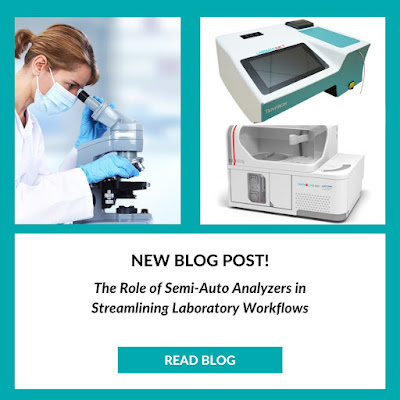The Role of Semi-Auto Analyzers in Streamlining Laboratory Workflows
Semi-auto analyzers are devices that perform clinical chemistry tests on biological samples such as blood, serum, plasma and urine. They are widely used in laboratories for diagnosing and monitoring various diseases and conditions, such as diabetes, kidney function, liver function, electrolyte balance, cardiac markers and drug abuse. Semi-auto analyzers are also useful for research and quality control purposes.
Semi-auto analyzers have several advantages over manual methods or fully automated systems. They are more cost-effective, as they require less reagents and consumables. They are also more flexible, as they can accommodate different types of samples and tests. They are easy to use, as they have user-friendly software and interfaces. They are also accurate and reliable, as they have built-in quality control features and calibration functions.
One of the leading manufacturers of semi-auto analyzers is Trivitron Healthcare, a global medical technology company based in India. Trivitron offers a range of semi-auto analyzers under the brand name Labmate, which are designed to meet the needs of various laboratory settings. Labmate semi-auto analyzers are versatile, robust and efficient devices that can perform up to 200 tests per hour with minimal maintenance.
Labmate semi-auto analyzers work on the principle of photometry, which is the measurement of light intensity or absorbance by a sample. The analyzers have a light source, a filter wheel, a sample chamber, a photodetector and a microprocessor. The sample is mixed with the appropriate reagent and incubated for a specific time and temperature. The reaction produces a color change in the sample, which is proportional to the concentration of the analyte. The filter wheel selects the wavelength of light that corresponds to the color of the sample. The light passes through the sample chamber and reaches the photodetector, which converts it into an electrical signal. The microprocessor calculates the absorbance value and displays the result on the screen or prints it out.
Labmate semi-auto analyzers have eight modes of operation: absorbance mode, end point mode, kinetic mode, fixed time mode, differential mode, bichromatic mode, coagulation mode and multi-standard mode. These modes allow the analyzers to perform various types of tests with different parameters and calculations. Labmate semi-auto analyzers also have features such as auto zero setting, auto blank correction, auto calibration curve plotting, auto dilution factor calculation and auto reagent blank correction.
Labmate semi-auto analyzers are compatible with Trivitron's Clinreact clinical chemistry reagents kits, which are high-quality and ready-to-use products that cover a wide range of parameters. Clinreact reagents kits have long shelf life and stability, low interference and high sensitivity. They are also validated for accuracy and precision on Labmate semi-auto analyzers.
Labmate semi-auto analyzers are ideal devices for streamlining laboratory workflows and improving productivity and efficiency. They are suitable for small to medium-sized laboratories that need fast and accurate results with minimal operational costs. They are also ideal for point-of-care testing in clinics and hospitals that need rapid diagnosis and treatment decisions.
Trivitron Healthcare is committed to providing innovative and affordable solutions for clinical chemistry testing. With its Labmate semi-auto analyzers and Clinreact reagents kits, Trivitron aims to enhance the quality of life and health outcomes of millions of people around the world.



Comments
Post a Comment